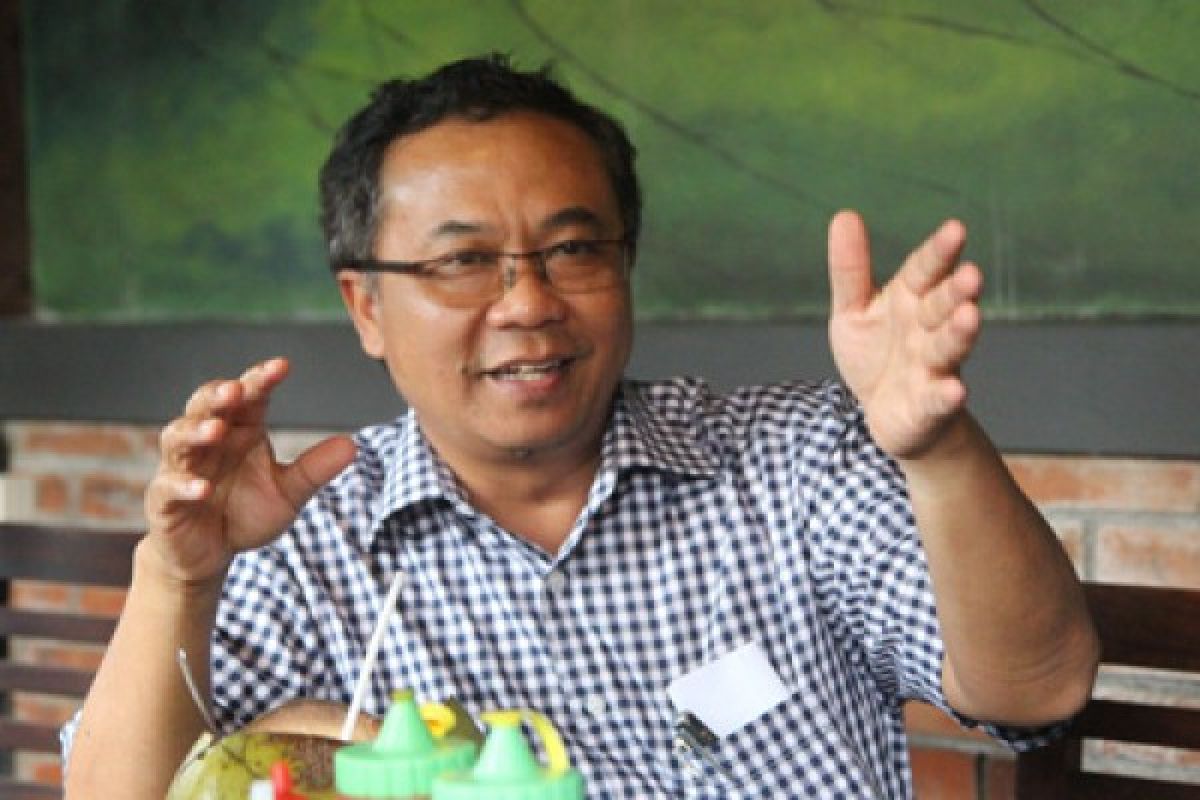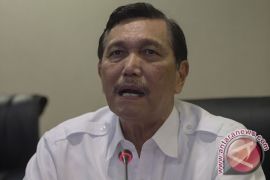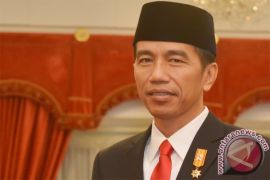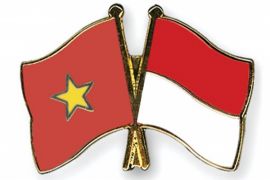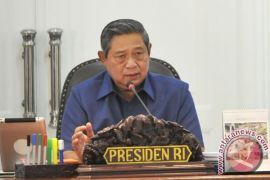Those who visit me represent 400 industries."Jakarta (ANTARA News) - The basic electricity tariff hike may increase production costs, particularly of domestic textile products by about 15 percent, thus weakening their competitiveness in the face of next years ASEAN Economic Community (AEC).
"The production cost of both up and downstream textile products is expected to rise by 15 percent when the basic electricity tariffs increase in May," General Chairman of the Indonesian Textile Producers Association (API) Ade Sudradjat Usman said.
Textile industries have predicted that the competitive edge of Indonesias textile products will therefore be weakened in the face of the ASEAN Economic Community, which will begin next year.
"The increase in the basic power rate (TDL) beginning on May 1, 2014, will affect production costs. I am afraid it will disturb the performance of industries, particularly that of big industries, amid preparations to enter the AEC," Industry Minister MS Hidayat said on Monday.
Electricity tariffs for large-scale industries will increase in the range of 8.6-13.3 percent every two months as of May 1. The increase is based on the results of a discussion with the House of Representatives and the Energy and Mineral Resources Ministry.
The government will no longer subsidize the electricity tariffs for large-scale industries as of November 1.
It had issued the Energy and Mineral Resources Ministers Decree No. 9/2014 on Electricity Supplies, in which the state-owned company PLN was given the task of setting the power tariffs for large-scale industries.
Under the regulation, which the energy and mineral resources minister signed on April 1, the electricity tariff hikes for publicly-listed companies using more than 200 kilovolt amperes (kVa), known as Group I3, will be 8.6 percent every two months.
The electricity tariff hike for industrial consumers using more than 30 thousand kVa, known as Group I4, will be 13.3 percent every two months.
The electricity tariffs for Group I3 will be increased by 8.6 percent and for Group I4 by 13.3 percent four times in 2014. After May 1, the electricity tariffs will be raised on July 1, September 1 and November 1, 2014.
In total, the electricity tariffs for Groups I3 and I4 will increase 38.9 percent and 64.7 percent, respectively.
According the Industry Minister MS Hidayat, four industrial associations, textile, steel, petrochemical and cement producers, have lodged complaints over the electricity tariff hikes.
One of the impacts of the tariff hikes is the weakening of products competitiveness of the national industries as they will face the burden of high production costs.
A high cost will lead business players to reduce the specifications and excellence of their industrial products, apart from raising the rate of their sale prices.
"Those who visit me represent 400 industries. They are aware of the fact that it is important for the government to raise the electricity tariffs but they are also questioning how to maintain their competitiveness. They asked for the extension of their installment period," the minister said.
According to Hidayat the government saves on an efficiency value of Rp8 trillion from the power tariff hikes, but there is no guarantee that the Rp8 trillion value will exceed the adverse impact it may have on the industrial performance.
"I heard that the elimination of the subsidy will earn the government some Rp8 trillion, but the question is that whether it exceeds the impact it may have on the weakening of industries," the minister said.
Minister Hidayat is planning to gather businessmen from industries to calculate the value that will be suffered from the weakening of the industries due to the tariff rate increase.
Besides weakening industries, the electricity tariff hikes will also led to a flood of imported goods in the country because of the decline in local products competitiveness. After all, by next year, the country will enter the free market within the AEC scheme.
"Imports will flood the country because such goods will face no significant competition. This will lead to larger imports. The government is determined to reduce deficit, but its policy will raise imports," API chairman Ade Sudradjat said.
He said the imports of textile and textile products can rise by 100 percent. Now, textile imports were about 75 percent of the import capacity.
As a result, textile companies will likely lay off some of their workers to lower their production costs, he said, adding that electricity currently accounted for 20-35 percent of textile companies production costs.
"We have 1,200 textile companies, which employ around one million workers. Some of them will be under a threat of layoff in the short term," he said.
The Semarang branch of API said layoff is the last resort to cope with the impact of the governments plan to raise the electricity tariff.
"There are a number of ways, such as efficiency in energy consumption. We have not yet thought of layoffs," the API branch chairman Agung Wahono said.
Efficiency in energy consumption, such as by reducing the use of electric motors and lamps, is an alternative, Agung said, adding "Both the Apindo (the association of businessmen) and the API agreed that there will be no dismissal of workers."
Job cut is used only when companies can no longer sustain the operating cost," he said.
Another alternative is by raising the selling prices after negotiations with buyers, he added.
"If price hike is the alternative, it will be made gradually to allow buyers to adjust to them," he said.
Price increase will likely be 5-7 percent, not enough to offset a 10 percent increase in production cost as a result of the tariff hike, he said.
Therefore, the ministry of industry is doing its best to formulate a compensation facility for industries affected by the power tariff hikes.
"I am thinking of how to design a compensation plan for companies over the electricity tariff increase so that industries will remain competitive," Director General for Basic Manufacturing Industry Harjanto said meanwhile.
He said the increase in the electricity tariff will cause the influx of imported goods into Indonesia. "This is because our competitiveness will weaken as a result of the power rate rise."
Imported goods will flow in if production costs in the domestic market increase. Domestic products will be difficult to compete, thus businesses will opt to import goods," he said.
He said the power rate hike will mostly affect the production of upstream goods.
"One of our homework is how to overcome the impact of textile raw material imports," he said.
Harjanto said his side had sent a letter to President Susilo Bambang Yudhoyono about a proposed solution to the matter but had not yet received any response.
"We have sent the letter. The letter also included inputs from (textile producers) associations," he added.
(T.A014/INE/KR-BSR)
Reporter: Andi Abdussalam
Editor: Priyambodo RH
Copyright © ANTARA 2014
